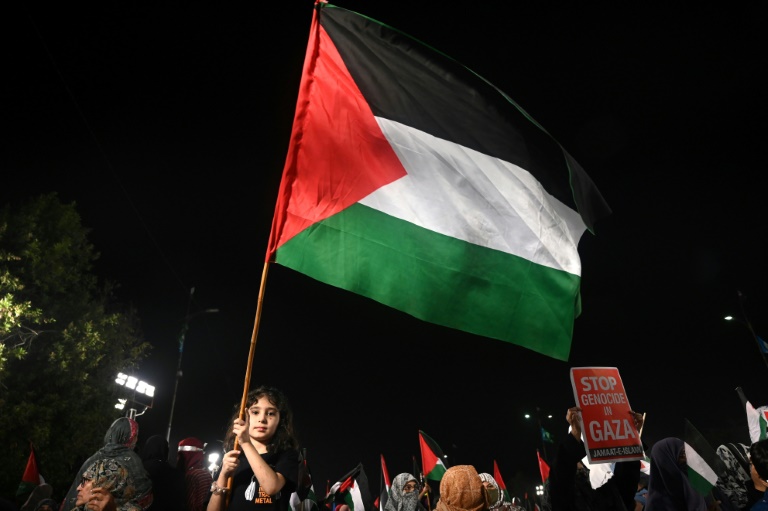Who recognises the existence of a Palestinian state?

According to the Palestinian Authority 137 of the 193 UN members already recognise a Palestinian state
Paris – Israel’s almost six-months-old war in Gaza since the October 7 attack has revived calls for Palestinians to be given a state of their own.
Spain’s left-wing Prime Minister Pedro Sanchez has announced plans to soon recognise a Palestinian state, breaking with other Western powers which have long argued this should only come as part of a negotiated peace with Israel.
The Palestinians themselves have meanwhile relaunched a more-than-decade-old application to become a full member state of the United Nations.
According to the Palestinian Authority, which rules parts of the occupied West Bank, 137 of the 193 UN members already recognise a Palestinian state.
They include many countries from the Middle East, Africa and other regions, but not the United States, Canada, most of western Europe, Australia, Japan or South Korea.
Here is a quick recap of the Palestinians’ quest for statehood:
– 1988: Arafat proclaims state –
On November 15, 1988, during the first Palestinian intifada, or uprising, Palestinian leader Yasser Arafat unilaterally proclaimed an independent Palestinian state with Jerusalem as its capital.
He made the announcement in Algiers, at a meeting of the exiled Palestinian National Council, which adopted the two-state solution as a goal, with independent Israeli and Palestinian states existing side by side.
Minutes later, Algeria became the first country to officially recognise an independent Palestinian state.
Within weeks, dozens of other countries, including much of the Arab world, India, Turkey, most of Africa and several central and eastern European countries had followed suit.
The next wave of recognitions came in late 2010 and early 2011, at a time of crisis in the Middle East peace process.
A host of South American countries including Argentina, Brazil and Chile answered calls by the Palestinians to endorse their statehood claims.
This came in response to Israel’s decision to end a temporary ban on Jewish settlement building in the occupied West Bank.
– 2011-2012: UN recognition –
In 2011, with peace talks at a standstill, the Palestinians decided to push ahead with a campaign for full UN membership for the “state of Palestine”.
The quest failed but, in a groundbreaking move on October 31 of that year, the UN cultural agency UNESCO voted to accept the Palestinians as a full member.
The decision triggered a furious reaction from Israel and the United States, which suspended their funding to the Paris-based body.
They quit UNESCO outright in 2018, although the United States rejoined last year.
In November 2012, the Palestinian flag was raised for the first time at the United Nations in New York after the General Assembly overwhelmingly voted to upgrade the status of the Palestinians to “non-member observer state”.
Three years later, the International Criminal Court also accepted Palestine as a state party.
– 2014: Sweden first in western Europe –
In 2014, Sweden, which has a large Palestinian community, became the first EU member in western Europe to recognise a Palestinian state.
The move followed months of almost daily clashes in Israeli-annexed east Jerusalem.
A state of Palestine had earlier been recognised by six other European countries — Bulgaria, Cyprus, the Czech Republic, Hungary, Poland and Romania.
Israel reacted angrily to Stockholm’s move, with then foreign minister Avigdor Lieberman telling the Swedes that “relations in the Middle East are a lot more complex than the self-assembly furniture of IKEA”.
– 2024: New push in Europe –
Spain is not the only EU member thinking of joining Sweden’s decision from a decade ago, amid widespread alarm in the 27-member bloc about Gaza’s spiralling death toll and looming famine.
The leaders of Ireland, Malta and Slovenia, in a joint statement with Spain’s Sanchez on March 22, expressed “readiness to recognise Palestine” when “the circumstances are right”.
